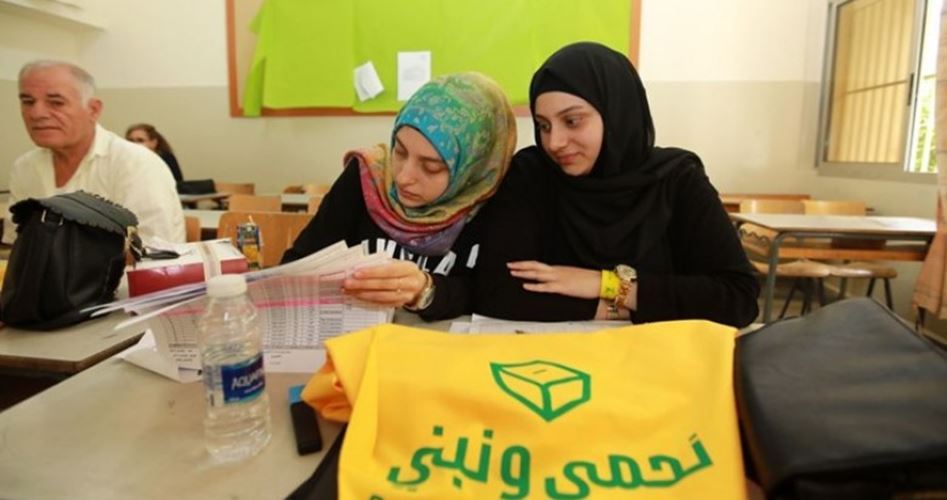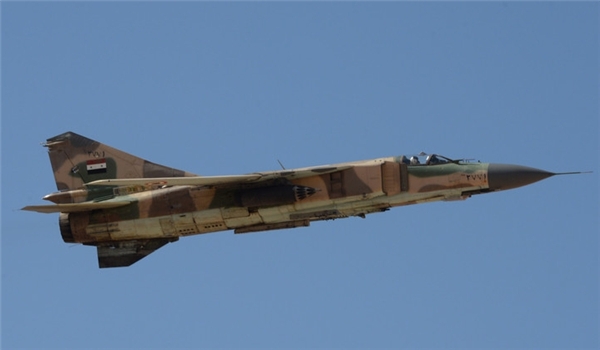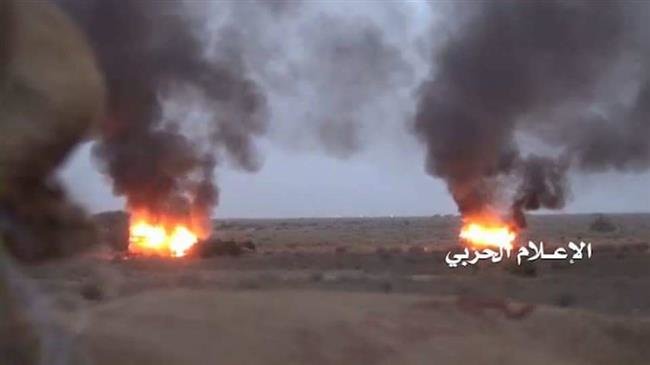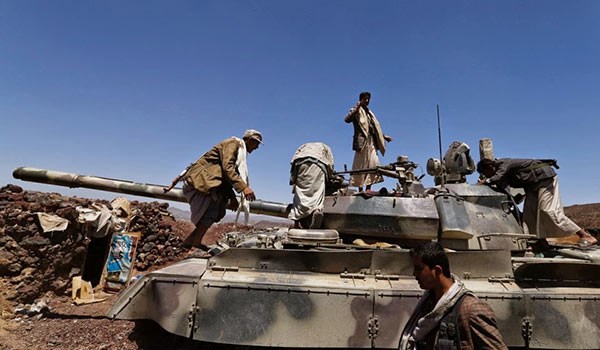Israel ‘carpet-bombs’ Gaza amid starvation, epidemic, coms blackout
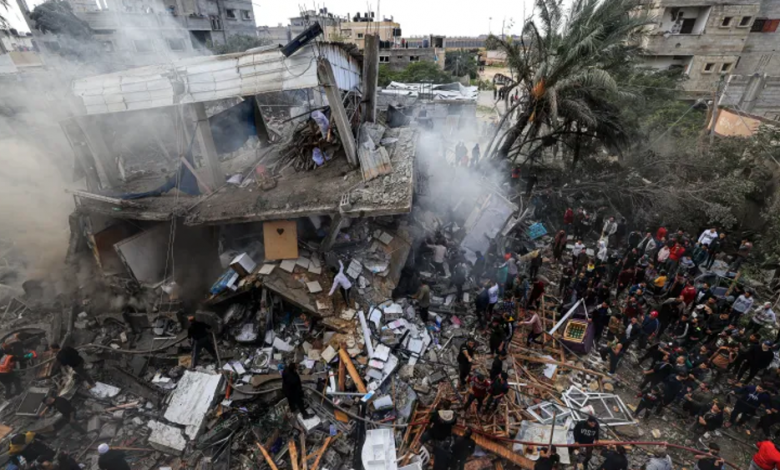
At least 27 people have been killed in Israeli strikes on two residential buildings in Rafah in southern Gaza, with victims still being reported to be under the rubble.
Footage from the scene shared online on Thursday showed local residents trying to extinguish a fire and rescue survivors as black smoke rose from one of the buildings.
Two adjacent homes belonging to the Abu Dhbaa and Ashour families were obliterated in the attack on the city, where tens of thousands of displaced people have sought shelter since a weeklong truce collapsed in early December.
Displaced people have been sleeping in makeshift shelters and in the streets after evacuating from the north and from other areas of southern Gaza that had previously been deemed safe by the Israeli military.
The new bout of killings came as a new US intelligence assessment revealed that nearly half of the air-to-ground munitions that Israel has used in Gaza in its war on Gaza since October 7 have been unguided, otherwise known as “dumb bombs”.
Israel carried out 18 strikes in the latest attack, in which 179 Palestinians were killed and 303 others wounded over the past day, Palestinian Ministry of Health spokesman Ashraf al-Qudra said.
Israeli warplanes on Thursday carried out a series of intense raids on large areas in the northern and southern Gaza Strip, specifically on the cities of Khan Younis and Rafah.
In northern Gaza, bodies of 10 Palestinians were retrieved after Israeli warplanes struck the Jabalia refugee camp.
The ministry said the death toll in Gaza since the start of the war has now reached 18,787. It said 50,897 Palestinians have also been wounded.
Josh Paul, the former State Department official who resigned in October over arms transfers to Israel as it bombarded Gaza, said the use of unguided bombs on the enclave is “unconscionable” and “must end now”.
According to a CNN report on Wednesday, a US intelligence report says that 40 to 45 percent of the 29,000 air-to-ground munitions Israel has used in Gaza are bombs without guidance systems.
“The use of thousands of unguided bombs against such a small and densely populated area as Gaza puts the lie to any comparison between Israel’s current operation and previous US military operations in the global war on terror,” Paul said on Thursday.
Paul said the idea that the US would continue to provide “munitions of any type to a regime that our own intelligence community assesses is using weapons in this way – effectively carpet-bombing urban areas – should be as horrifying to the American public as I hope it is to my former colleagues in government”.
“American lethal military assistance to Israel for use in Gaza, and in any of the occupied territories, makes us complicit in these war crimes. It must end – and it must end now,” he said.
The humanitarian situation in the besieged territory continued to deteriorate, with nearly 85 percent of Gaza’s residents or 1.9 million Palestinians having been displaced, according to the UN which said almost half of Gaza’s population now live in Rafah.
Strong winds and heavy rain are bringing even more misery to displaced Palestinians. The rain is tearing and flooding flimsy tents, drenching clothes and blankets, and leaving people exposed to the cold.
At a tent camp in Rafah, located on sandy terrain strewn with rubbish, people were trying to recover from a horrible night, carrying buckets of sand to cover puddles inside or just outside their tents, and hanging up soggy clothes, Reuters reported Thursday.
UNRWA commissioner-general Philippe Lazzarini said UN trucks are being stopped in Gaza as Palestinians starved by the Israeli siege crowd around shelters and trucks in large numbers.
“People are stopping aid trucks, taking the food and eating it straight away,” he said. “Hunger has now emerged over the last few weeks and we meet more and more people who haven’t eaten for one, two or three days.”
A spokesperson for Medical Aid for Palestinians (MAP) said it is becoming increasingly difficult to sustain life in Gaza due to Israeli bombing and siege.
“Staff on the ground say that every day that passes makes it more and more difficult to sustain human life in Gaza, that’s because of the systematic denial of food, water, medicine and fuel to the civilian population in Gaza,” Melanie Ward, the CEO of MAP said.
Ward added that Israeli indiscriminate bombing will soon result in the killing of 10,000 children. “The situation couldn’t be more grim,” she added.
Paltel, one of the main telecommunications providers in Gaza, announced on Thursday that due to Israeli aggression all its services have been cut.
“Dear people in our beloved homeland, we regret to announce a complete cessation of all communications and Internet services with the Gaza Strip, due to the ongoing aggression. May God protect you and protect our country,” Paltel said in a post on X.
Doctors and aid workers also said that with a health system on its knees, and no food, water or shelter, people in Gaza face an inevitable epidemic.
“The perfect storm for disease has begun. Now it’s about, ‘How bad will it get?'” James Elder, chief spokesperson for the UN children’s fund (UNICEF), told Reuters.
Between November 29 and December 10, cases of diarrhea in children under five in Gaza jumped 66 percent to 59,895 cases, and climbed 55 percent in the rest of the population, according to data from the World Health Organization (WHO).
The UN agency said the numbers were inevitably incomplete due to the meltdown of all systems and services in Gaza because of Israeli bombing.
The head of the pediatric ward at Nasser Hospital in Khan Younis in southern Gaza, Dr Ahmed Al-Farra, said his ward was overrun with children suffering extreme dehydration, causing kidney failure in some cases, while the rate of severe diarrhea was four times higher than normal.
